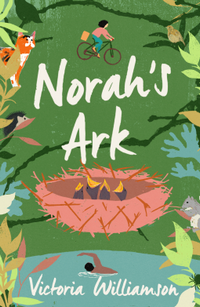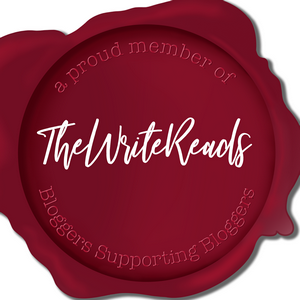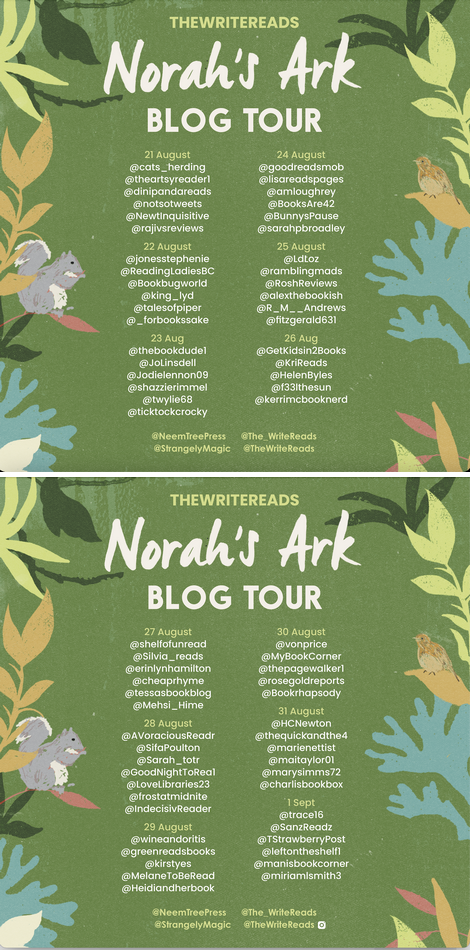 Norah’s Ark
Norah’s Ark
DETAILS: Publisher: Neem Tree Press Publication Date: August 29, 2023 Format: eARC Length: 304 pg. Read Date: August 26-28, 2023

What’s Norah’s Ark About?
This is a book about a couple of eleven-year-olds in the English city of Hull who bond over their mutual attempts to help animals. Starting with a nest of baby birds who’ve been orphaned by a hungry cat, these two overcome various barriers (largely in the form of their parents) to various stray and abandoned animals they encounter. Along the way, they end up helping each other through some of the bigger challenges they’ve faced.
Norah (and her father)
Norah’s father lost his job a few years ago, which led to them losing their home. Since then they’ve bounced from one temporary housing situation to another, barely scraping by on his benefits and whatever short-term and low-paying jobs he can get. They attend a church regularly—and gorge themselves on the post-service snacks. They also use a food bank from time to time—but it’s hard for her father to swallow his pride and deal with the judgemental looks they receive when they do (how many of these looks are only in his mind, it’s hard to tell—but some of them are real).
Norah has some learning disabilities, too—and she’s never in one school long enough to really get the help she needs. Which leaves her open to being bullied while she falls further and further behind.
Norah loves animals and would do anything for a pet. Because she can’t get one due to their housing situation—well, other than the spiders she keeps on her window sill—she does what she can for whatever strays she finds like the aforementioned birds. She takes care of them for a while until one day they’re missing. They and their whole nest—what could’ve possibly happened?
Then she sees some rich boy on the other side of the fence carrying that nest. It’s not fair—he has so much already, a great house, a big yard, a treehouse, fancy clothes (that fit!), and whatever he wants to eat (he is a little overweight).
Adam (and his parents)
Adam and his parents moved from London to Hull a few years ago to help him get the specialized treatment he needed for leukemia. It’s in remission now, but his mom has become overprotective following his diagnosis. Since she had to leave her job to care for him (and hasn’t thought about going back to work), his father has to work harder than before and really has no time for anything else—even Adam.
He can’t go anywhere without her. He can’t go back to school—even if the doctors say he’s not as immunocompromised as he once was, his mother still insists on a private tutor. He can’t go swimming—he’d dreamed of going to the Olympics before he got sick—again, because of all the exposure to germs, people, and other things that could hurt him. His treatments and lack of exercise have left him out of shape. He’s lonely. All he wants is a friend and to do something outside his home.
When he discovers that the neighbor’s mean (at least to him) cat has eaten the mother bird, he takes the nest up to his treehouse (without his mother noticing and panicking about the filthy animals). He notices a girl on the other side of the fence quickly riding off on her bike—what a great life she must have—able to go wherever she wants!
The Grass Ain’t Always Greener…
Soon, the two actually meet and decide to work together to help the birds get to safety.
They learn more about each other—both discovering the struggles the other has gone through. They have unfortunate encounters with bullies and thieves—and discover their parents want them to have nothing to do with each other.
But neither of them has really had a friend in a long time and they’re unwilling to lose their new one. So they do what they can to keep that friendship—even if that means being disobedient. Both kids soon have to deal with new problems with their parents and need someone to rely on.
So, what did I think about Norah’s Ark?
That’s a really good question, one that I’ve been chewing on for a few days now.
I do have a few concerns. For example, both Norah and Adam (Adam is a bit more prone to this) can be too mature and understanding for their ages when it comes to their parents and what motivates them. Most of the time, Williamson gets them right—unreliable narrators (not because they’re dishonest, but because they’re 11 and don’t get everything the adults are doing) who are doing their best to make it in the world and cope with the information they have, with the impulsivity and insufficient emotional control you’d expect. But occasionally, they’re too perceptive, too wise…basically, they sound like they’ve sat through a decent amount of therapy and have internalized it. Which would be fine if they’d been in therapy, or were in their twenties. But they’re a decade and change away from being fully believable on some of these fronts.
The other thing (and I’ll get into vague spoilers for the rest of this paragraph, so feel free to skip it) that has bugged me since before I finished it—the ending is a bit hard to swallow. It’s too easy. It’s too unearned for my tastes. It’s like Williamson took a page from Wayne’s World and went with the “Mega Happy Ending” and just imposed it at a certain point. Please, don’t misunderstand me—I want Adam and Norah to get happy endings. I like where the book puts them in the last chapter—I’d have been displeased if they didn’t end up where they did. But…it would’ve felt more real if it didn’t go that way. Or if it took slow, incremental work for them to get there—with a few big jumps along the way, sure. To use a bad illustration—you know how in some movies the uncoordinated guy goes through a training montage and suddenly can do all sorts of things they couldn’t before the song started? Well, it was like that—but Norah and Adam skipped the montage and went from clumsy to ready to win the dance/singing/martial arts contest.
Now this is likely just me—I’m willing to bet that most readers in the target audience aren’t going to have those issues. But I’d quite like to ask a few about their experience reading the books, particularly the ending.
Ignore all that for a moment (as I’ve said over and over again—it takes many more words to explain a problem I have with a book than to say all the good things I want to say). This novel nails the struggles for both these children and their parents—who are clearly trying their best (even if the kids don’t always see that)—no one in this book has an easy time of it. They’re all in extreme circumstances, with the cards stacked against them—and everyone is just trying to get through it as intact as they can for themselves and their family.
I loved, loved, loved that someone wrote about these situations in a Middle Grade book—you just don’t see enough things like this (or at least, I don’t, I shouldn’t suggest it doesn’t exist). I remember when I was in that audience, and Wooly Mammoths roamed the earth, that I got seriously excited when I came across a book that dealt with things like this, even if it made for hard reading. Since then, I don’t see it too often.
It’s impossible to read this without feeling empathy for Norah or Adam—or their parents—and to extrapolate that empathy and sympathy toward non-fictional people in similar circumstances. I’m not saying that this book is going to fix all sorts of prejudices that a child might have and fill playgrounds everywhere with mini-Brené Brown clones. But it should make it a little easier for them to put themselves in someone else’s shoes, to understand that peers—or strangers—could be going through something.
If you’ve read and enjoyed When We Were Vikings by Andrew David MacDonald, you’re going to want to check this one out. If you haven’t—read both books. I think readers young and old will find a lot to admire and commend in these pages. I feel strange saying you’ll enjoy a book about so much suffering—but you will, particularly when the characters find a moment of joy or peace. It’s very effective—and affective—to watch these two become heroes and get different endings than either expected for most of the book.
Disclaimer: I received this eARC from Neem Tree Press via NetGalley in exchange for this post—thanks to both for this.


My thanks to The Write Reads for the invitation to participate in this tour and the materials they provided.





Jodie Crump
Well, now I do need to read both books!
HCNewton
I know your younger collaborator is a tad too older than the target, but I’d love to see what he thinks, too.
Cat Strawberry
I know that Norah and Adam might seem too mature, but growing up with an illness makes many children more mature and growing up in poverty like Norah does can do that too. I was quite mature at age 11, far more than my peers due to being diagnosed with a chronic illness.
I do agree that the ending was almost too perfect though, but I think that’s what generally happens with children’s books versus books for older ages. 😀
HCNewton
That’s a really good point about the maturity brought on by their circumstances. I didn’t give that enough weight.
If that ending was just a liiiiitle harder, I wouldn’t have said a thing. Probably.